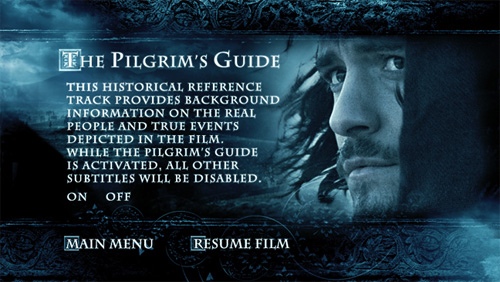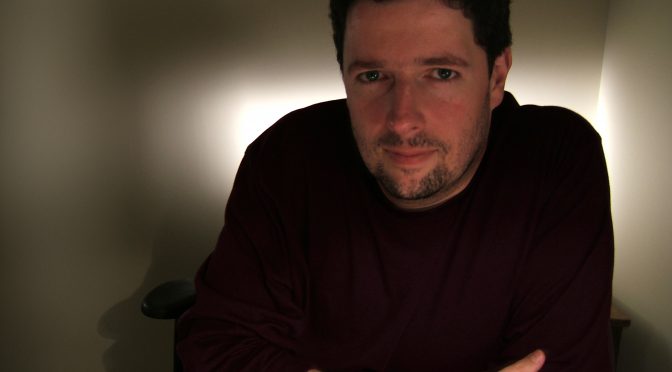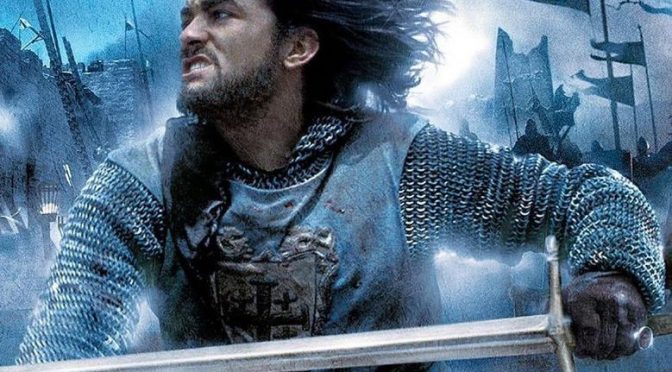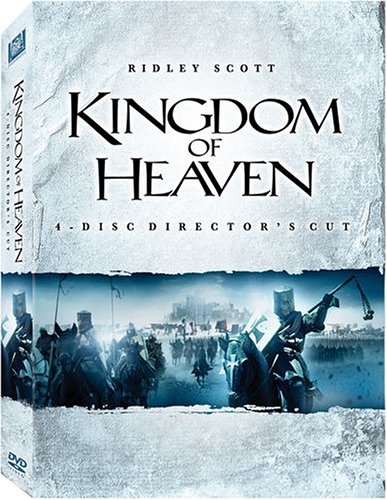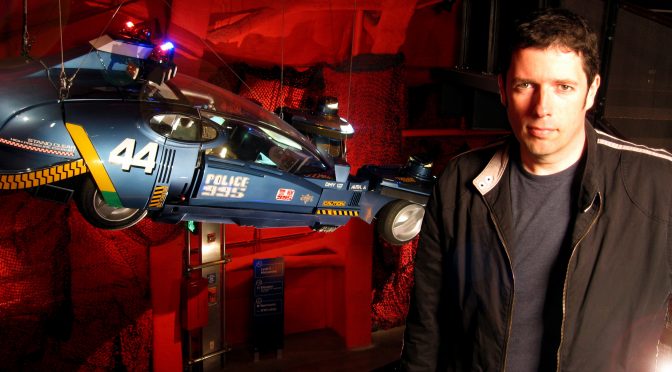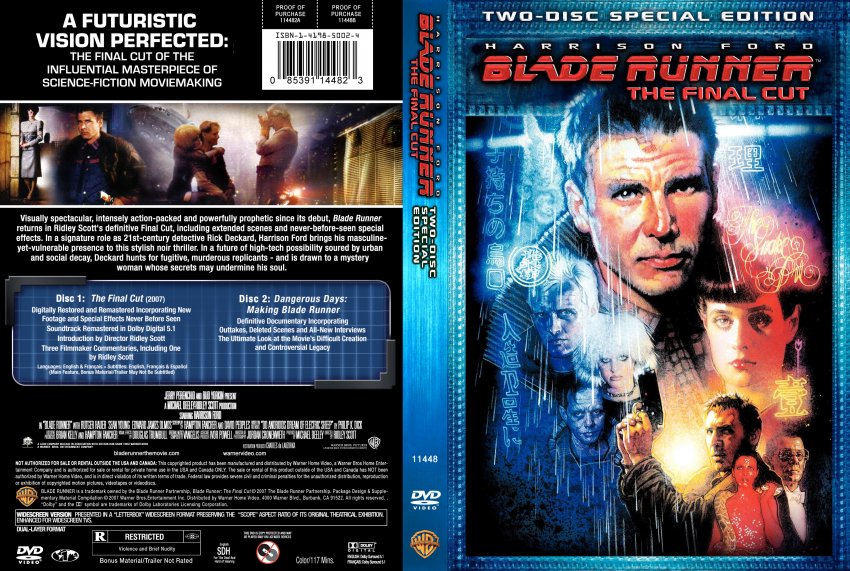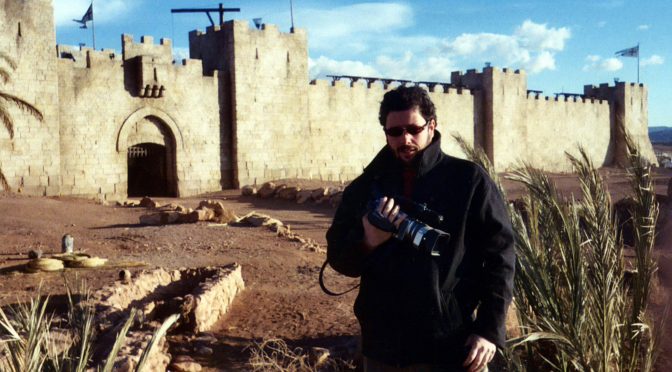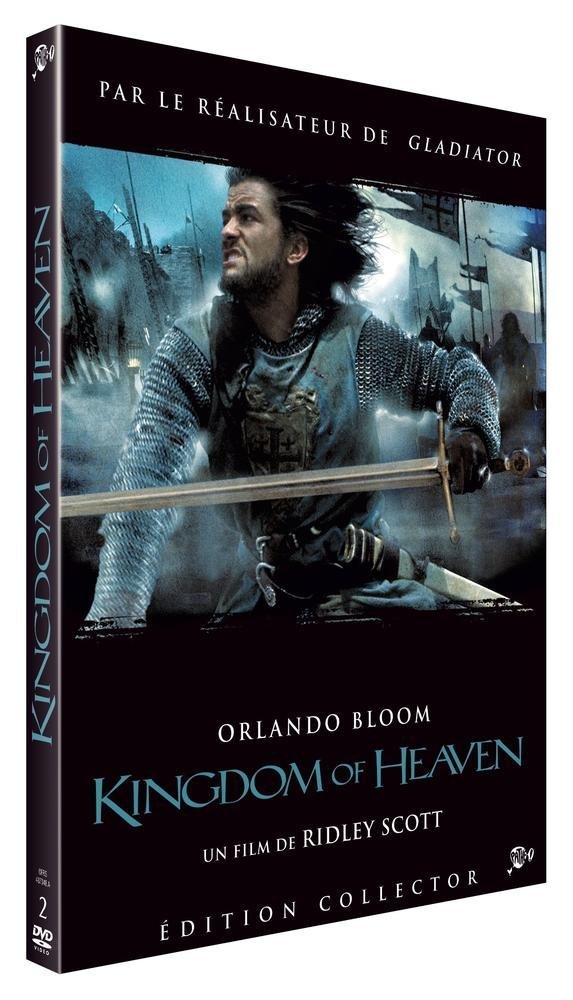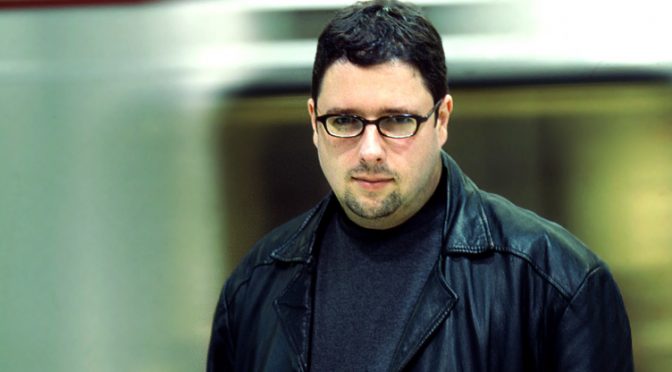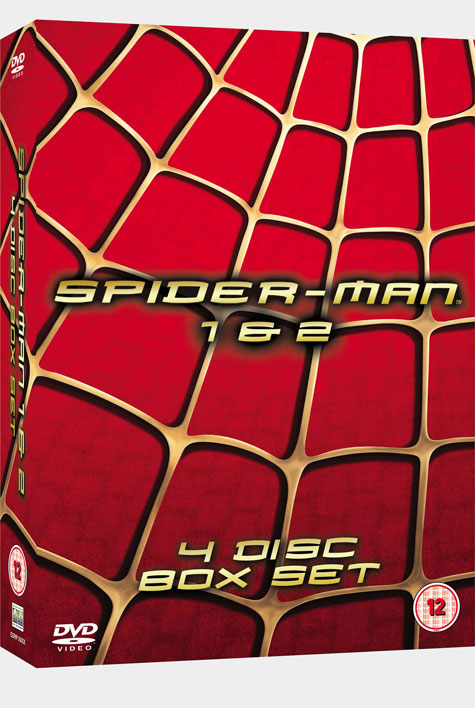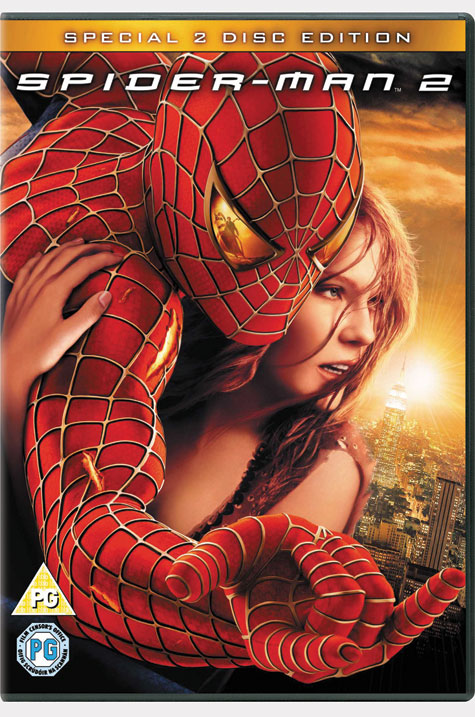En 2007 j’ai demandé à trois producteurs stars de DVD ce qu’ils pensent de la HD, est-elle tout bonus ?
Charles de Lauzirika, réalisateur de documentaires, collaborateur rapproché des frères Ridley et Tony Scott a conçu les DVD de : Alien Quadrilogy, Spider-Man 2, Gladiator, La Chute du Faucon Noir…
Rien que ça !
Version originale anglaise complète à lire après la version française éditée pour publication…
Version française éditée pour publication
Bliss : Les nouveaux supports Blu-ray et HD DVD offrent-ils un meilleur support pour les bonus ?
Charles de Lauzirika : La qualité du son et de l’image du film doivent être prioritaires. HD DVD et Blu-ray offrent de nombreuses manières d’augmenter votre appréciation et votre connaissance d’un film mais à part filmer en HD je vois beaucoup de gimmicks et peu de réinvention.
Bliss : Quel est le premier film/DVD sur lequel vous travaillez avec un format HD ?
Charles de Lauzirika : Déjà sur Kingdom of Heaven, Man on Fire, Monster House et Déjà Vu. Et actuellement sur Blade Runner qui sortira, comme l’a dit Warner, en HD DVD et Blu-ray.
Bliss : Avez-vous une approche différente pour les bonus selon les formats HD DVD et Blu-ray ?
Charles de Lauzirika : Pas encore. Entre le In-Movie Experience de Warner ou le U-Choose d’Universal il y a des choses à faire, à condition de donner aux spectateurs quelque chose qui mérite d’être vu. J’ai expérimenté des choses sur DVD SD adoptées sur les nouveaux formats, je n’imagine pas m’arrêter maintenant.
Bliss : Si l’un de vos précédents DVD ressort en HD, y travaillerez-vous ?
Charles de Lauzirika : Il sera facile de faire des upgrades directs vers la HD pour certains, tandis que d’autres auront un sérieux besoin d’être recalibrés. Cela donnera l’occasion de faire des petits ajustements.
Bliss : Comment allez vous effectuer la transition entre SD et HD pour les documents d’archives déjà mastérisés ou à venir ? Est-ce utile de filmer documentaires et interviews en HD ?
Charles de Lauzirika : J’ai commencé à travailler en HD l’année dernière. Pour des raisons de budget, presque aucun des suppléments de mes anciens projets ont été préparé pour la HD. Tout ce que je conçois et archive est désormais en HD. Tout cela a un coût que les studios ne veulent pas payer tant qu’ils ne sont pas sûrs de leur stratégie vis-à-vis des deux formats HD. Nous sommes dans une période transitoire.
Bliss : Les réalisateurs avec qui vous travaillez sont-ils concernés par la HD ?
Charles de Lauzirika : Ils sont beaucoup trop occupés sur leur film pour être très concerné par les bonus HD. Ils sont plus intéressé de savoir si ces formats vont améliorer la présentation de leurs films.
Bliss : Les fonctions interactives propres au Blu-ray et au HD DVD ouvrent-elles de nouvelles possibilités ?
Charles de Lauzirika : Je ne crois pas que ces contenus interactifs synchronisés avec le film vont améliorer significativement ce que nous faisons en SD. Les capacités du DVD SD n’ont pas été assez vantées et maintenant que l’on veut attirer de nouveaux consommateurs, le marché insiste sur ces fonctionnalités sur HD DVD et Blu-ray.
Bliss : Que pensez-vous des problèmes de compatibilités provoqués par ces nouvelles interactivités ?
Charles de Lauzirika : Je crée le contenu, le livre au studio et m’assure que cela fonctionne comme prévu. Après, c’est la responsabilité des unités d’authoring et de duplication de s’assurer que les disques fonctionnent correctement chez les gens.
Bliss : Avez-vous une préférence professionnelle entre le HD DVD ou le Blu-ray ?
Charles de Lauzirika : Pas pour le moment. Aucun des deux formats ne rend mon travail plus facile ni plus satisfaisant.
Propos recueillis et traduits en mars 2007 par François Bliss de la Boissière
Lire aussi…
- Van Ling : DVD producteur pour James Cameron, Star Wars Trilogy…
- Kim Aubry : DVD producer pour France Ford Coppola
Version originale anglaise complète
Bliss : Do you think there is a need for high definition bonus or is it still for some happy few passionate? Meaning, is it worth the efforts for you, the studios and even the movie directors?
Charles de Lauzirika : First and foremost, picture and sound quality for the film itself has to take top priority. Then, if there’s room available and there’s an interesting behind-the-scenes story to be told, I think the first you thing you have to do is consider what are the best ways to tell that story, regardless of format. Right now, there are many possibilities with HD and Blu-Ray in terms of finding new ways to supplement your enjoyment and knowledge of a film but aside from shooting interviews and behind-the-scenes footage in hi-def for protection, I’m not seeing a lot of new ways to better tell the story. I see a lot of gimmicks but not a lot of reinvention. Hopefully, as HD and Blu-Ray evolve, that will change for the better.
Bliss : What is the first film you worked, or are working on, that is going to be released on any HD formats?
Charles de Lauzirika : The first DVDs I worked on with an eye towards an eventual HD or Blu-Ray release were Kingdom of Heaven, Man On Fire, Monster House and Deja Vu. I’m currently working on Blade Runner, which Warners has announced will also be released on HD and Blu-Ray.
Bliss : Do you have a different approach regarding extras on HD DVD or Blu-ray?
Charles de Lauzirika : Not yet. It’s still about imparting information and meaningful content. There are different ways of doing that with HD and Blu-Ray, such as Warner’s In-Movie Experience or Universal’s U-Choose features, but ultimately, it’s still about giving viewers something worth watching. I’ve been experimenting with interactive features since the beginning and doing things on standard-def DVD that are now being adopted or enhanced by the next generation formats, so I don’t imagine I’ll stop now.
Bliss : If, or when, one of your previous DVD is re-released on a HD format, will you work on it ? Would the bonus be a simple transfer from the DVD or would you work again on it?
Charles de Lauzirika : It depends on the project, the studio, the budget, the schedule, the availability of assets in HD and so many other things. There are some projects that I think will be very easy to simply make a direct up-res to HD while others will require more serious retooling. At the very least, it could provide me with an opportunity to make little tweaks and fixes I didn’t have time to make the first time.
Bliss : Did the digital transfers of past archives have been readied for HD formats and could be ported without going back to the digital scan? What is your opinion regarding those past documents? Going HD with them or keeping the already digital transfer? What is the position of the studios you work with regarding this issue?
Charles de Lauzirika : Due to budgetary considerations, almost none of the past projects I’ve worked on have been readied for HD, at least in terms of the supplements. It’s really only within the last year that we’ve started doing that, and not on every title. It would make things a lot easier to deliver everything as HD-ready but that costs more money and the studios don’t usually want to pay that unless they’re sure about their future strategy on HD or Blu-Ray.
Bliss : What about future archives you might dig up, which kind of technical treatment would you do for the HD formats (or not)?
Charles de Lauzirika : From now, almost everything I do will be protected for HD, so long as the budget allows for that. Seriously, there is a significant difference in cost between a simple standard-def delivery and then including HD and Blu-Ray into the equation. But in terms of scanning and shooting, the overwhelming majority of the content I’m working with will be archived with HD in mind.
Bliss : Are you shooting your documentaries and interviews in HD ? Since when, or do you plan to? Is it relevant to do so?
Charles de Lauzirika : Again, it depends on the budget, but yes, most of the interviews and behind-the-scenes footage are now being shot in HD. We’re still in a little bit of a transitional period with the studios, as they decide how much money to spend on a given title and what kind of treatment that title deserves. But for the most part, HD is part of the process now, especially on new movies.
Bliss : Are movie directors you work with concerned, interested by those high def contents that they may have to provide for future HD DVD or Blu-ray releases? Whether for a new projects or past projects?
Charles de Lauzirika : So far, they’re too busy working on their own films to be overly-concerned with HD or Blu-Ray extras. They’re more interested in – -and rightly so — how HD and Blu-Ray can improve the presentation of their films. Everything else is icing on the cake.
Bliss : Both HD DVD and Blu-ray may be programmed for some special interactivities during movie footage… Did you start working on that technology? Is it easy to do? Does is really open some new doors for you as a DVD producer and maybe the consumer or is it just a gimmick?
Charles de Lauzirika : I discussed this above, but I don’t think the kind of synchronous HD and Blu-Ray content you’re talking about are allowing significantly more creative freedom or improved information delivery than what we already had in standard definition. The difference is, most people weren’t pushing the capabilities of SD DVD and now they need something new to attract consumers, so they’re pushing that kind of experience harder with HD and Blu-Ray.
Bliss : There seem to have some compatibility issues with those interactive programs, whether on Blu-ray players or the LG Blu-ray HD DVD combo that doesn’t play HD DVD interactive programs. How do you deal with that?
Charles de Lauzirika : Fortunately or unfortunately, that’s out my hands. I create the content, deliver it to the studio and make sure it works as designed. After that, it’s up to the various authoring and duplication facilities to make sure the discs they’re manufacturing actually work in people’s homes.
Bliss : Do you have a preference as a professional between the two formats : Blu-ray and HD DVD?
Charles de Lauzirika : Not at the moment. Both formats have their pros and cons. Originally I was rooting for Blu-Ray because of the higher disc capacity but as the format war drags on, it’s become more about survival of the fittest. I’ll wait for a clear winner before investing in one format or the other. Neither one makes my job any easier, or more fulfilling. Yet.
Propos recueillis en mars 2007 par François Bliss de la Boissière
